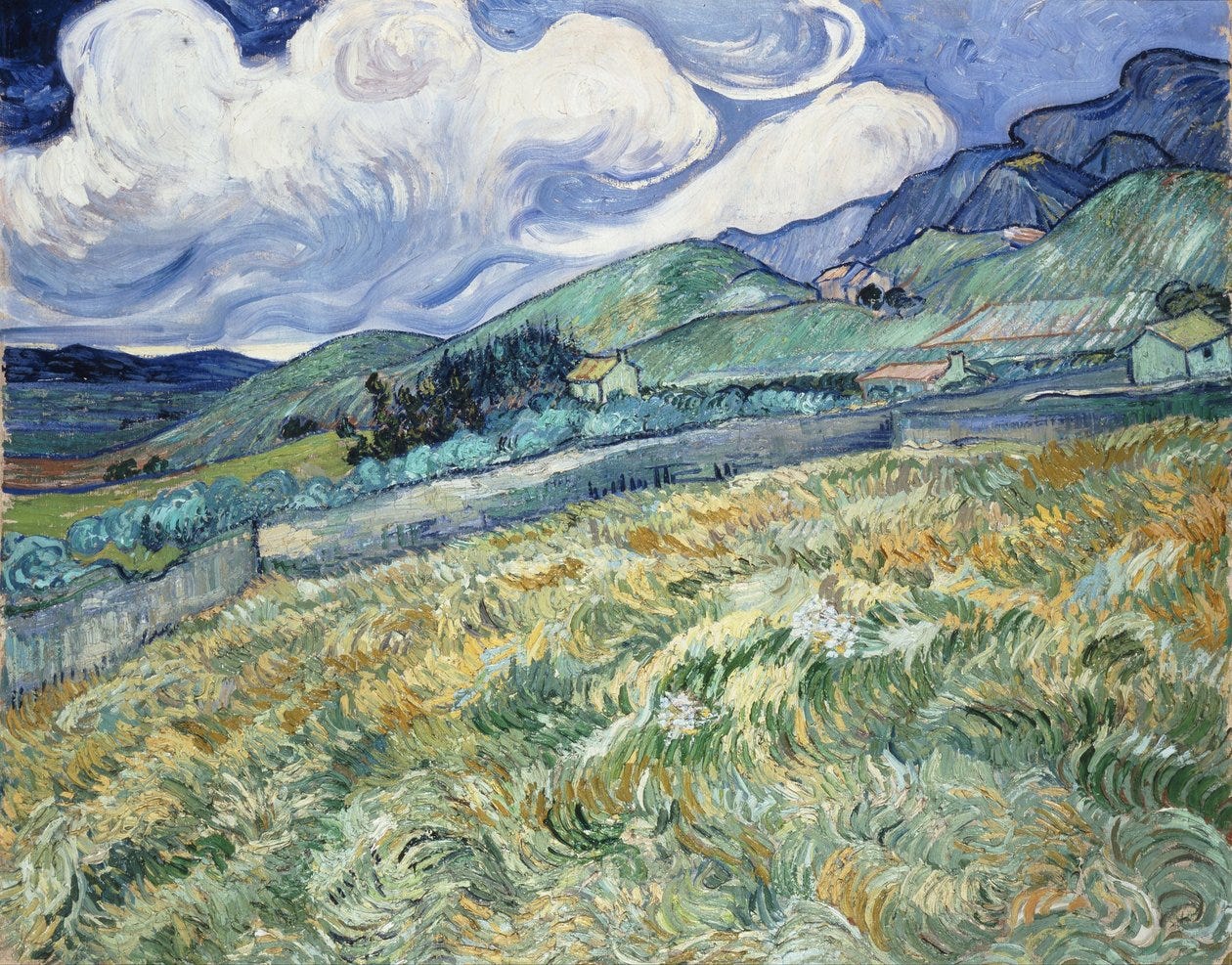We really don’t know.
Seeming choices are wishful thinking, or perhaps presumptions, if they’re believed as truth. We literally and truly don’t know what will happen in the next five minutes, or even the next moment, let alone six months from now. Sure, we make plans, and often they happen in a broad-strokes kind of way. But each moment that does occur is ineffably complex, unspeakable, and unknowable. What a ride!
So you have to get comfortable with that. And there’s certainly no wisdom in getting attached to anything. I think this is the heart of the teaching: that the conditioned world is wholly ever-changing and transient. As I’ve said before, there are no fixed points — nowhere and nothing that can be grasped. But not recognizing this, we do grasp and cling, and so we suffer the impossible attempt to hold on to anything, whether it’s possessions, loved ones, or self-identity.
Beneath every proximal or contingent cause of suffering is another seeming cause. But at the end of that chain is the true cause of suffering: ignorance of the true nature of things. Happily, the converse is true. The end of ignorance — true knowledge, recognition of true nature — is the end of suffering.
Where there is ignorance, there is suffering. Where there is clarity and truth, there is freedom and peace.
I keep coming back to this because it’s so essentially true. We suffer because we don’t accept reality or haven’t sufficiently recognized its nature. True and deep recognition is the key to all this. It’s like trying to push over a mountain. If you really recognized the immovable nature of it, you’d quite naturally cease your efforts and accept its reality.
It’s the same with clinging and grasping — when we see the impossibility of it, our efforts stop, and with them, the misery of expecting, hoping, or trying to have reality be other than it is, other than it must be.
So we learn to un-grasp, un-cling — both by proximally noticing and releasing contractions, and also by recognizing the futility and painful effects of it. But even deeper, we recognize that the Ground, the unconditioned field of being, the true Self, is naturally open and ever-free of grasping.
In the end this is about accepting reality, all of it. And on a human level it shows up as the acceptance of all that we are; all the good, all the bad, all the ‘imperfect’ messiness of our beautiful embodied beingness.
There’s freedom in the flow.
The idea that fixity is where we find security is a wrong view.
But here’s another false view that leads to suffering — the notion that even though reality is changing, transient, yet we can somehow direct the change. This fallacy happens where the recognition of impermanence hasn’t gone deep enough, because a full reckoning of the transient field of phenomenal existence leaves nowhere for a permanent and separate self-agent to plant its flag. No doer, no doing.
Sometimes there’s a lag between experience and acceptance.
That lag is conditioning, judgment, resistance. Sometimes it’s trauma. Finding the ‘yes’ then is the work. I heard Fr. Richard Rohr once describe how sometimes he has to find or get to the ‘yes’ to some situation or other — demonstrating that even those who are in true abidance can experience some residual resistance in the system.
All this has been said before; all this will be said again.
I think some people start to distrust certain spiritual teachings because the terms used become dead or clichéd through overuse, and because they remain ‘undigested’. It’s a form of semantic satiation, where the words lose their meaning because they’re over-familiar. This is both the result and cause of the failure to recognize what’s being pointed to.
Different people respond to different terms that point to the same ineffable subjective reality: God, self, consciousness, absolute, being, rigpa — I could go on and on.
In the words of Zen Master Seung Sahn:
"We must first return our minds before thinking arises. That point has no name and no form. Some people call it mind, or nature, or substance, or God, or self, or Buddha, or soul, or spirit, or consciousness. But originally that point has no name and no form because it is already before thinking, so opening your mouth to call it anything is already a big mistake."
The idea is to follow the words to where they point. And if some words don’t work, you find the ones that do the job. The ‘goal’ is the recognition and realization of the ineffable as the ground of your own being. Once that has been accomplished, the words can either be used easily and freely or discarded entirely.



